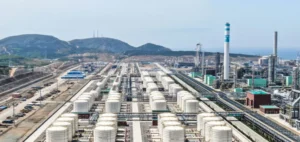The announcement by the US Embassy in Guyana of military air exercises with the Guyana Defense Forces (GDF) comes against a backdrop of heightened tensions with Venezuela. These exercises, described as routine, aim to strengthen security and regional cooperation, but come at a time when the situation between Georgetown and Caracas over the Essequibo region is particularly tense.
Guyanese Helicopter Disappears
The disappearance of a Guyanese military helicopter near the Venezuelan border adds another layer of urgency to these exercises. Although the Guyanese authorities have not established a direct link with Venezuela, this situation raises questions about security in the region, exacerbating existing tensions.
Exercise objectives and USA-Guyana collaboration
These air operations are part of a series of commitments between the United States and Guyana, aimed not only at strengthening security ties, but also at cooperating in areas such as disaster preparedness, air and maritime safety, and the fight against transnational criminal organizations. The American commitment to Guyana is also motivated by the presence of ExxonMobil, a major player in the country’s oil industry.
Regional and international implications
The exercise takes place against a complex geopolitical backdrop, with US-backed Guyana facing territorial claims from Venezuela. The involvement of the United States, Guyana’s ally, and the region’s considerable oil resources, particularly in the Essequibo, highlight the strategic and economic stakes of this crisis.
The announcement of US military air exercises in Guyana, against a backdrop of tension with Venezuela, highlights the complexity of the security and economic stakes in the region, which is marked by geopolitical and oil interests.





















